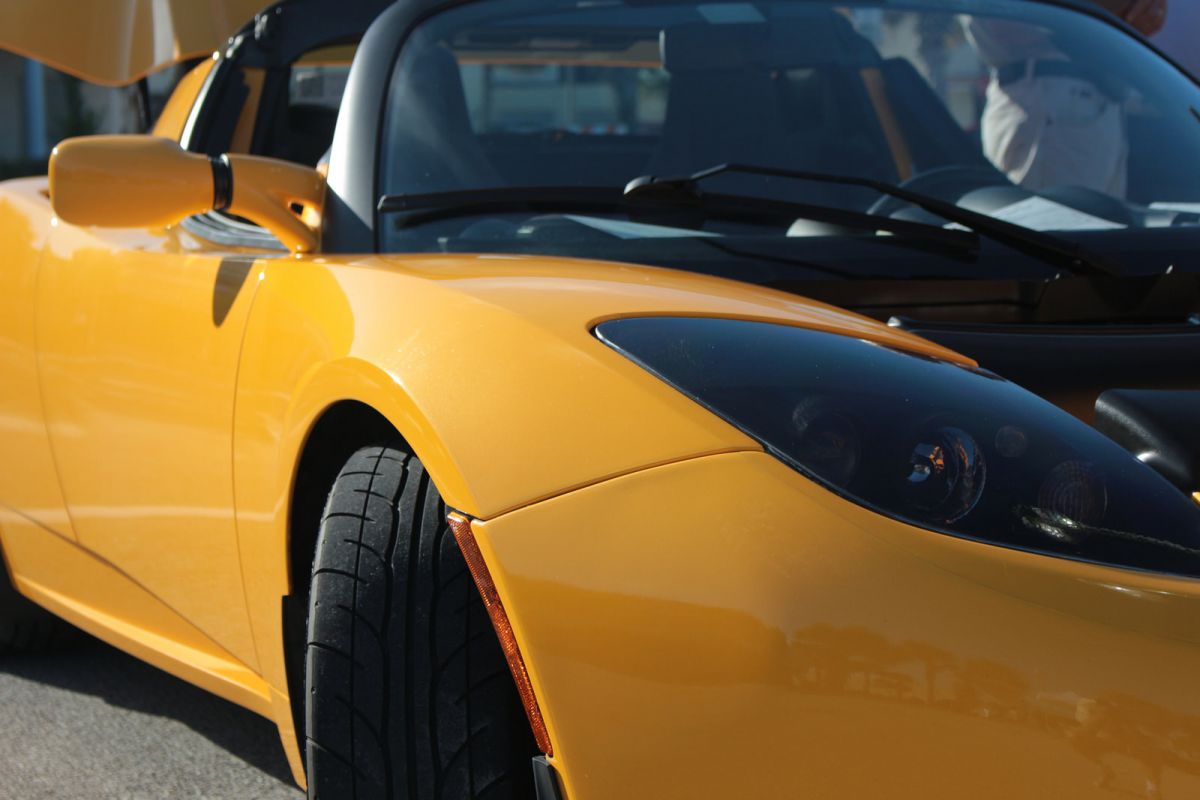We are at a crossroads in the automotive industry. While Elon Musk pushes toward the widespread utilization of battery electric vehicles and their supporting infrastructure, Toyota dares to try something different.
The Toyota Mirai is a hydrogen fueled automobile that features cutting edge fuel cell technology. The Japanese have invested significant resources into the development of broadly applicable hydrogen-powered technology in order to cut back on the necessity of nuclear power plants. Hydrogen is considered a clean energy source, and it emits no carbon dioxide when burned. However, hydrogen is a comparatively rare resource and an expensive alternative to fossil fuels.
The Mirai has an EPA rated 300 mile range when driving on a full tank. Comparatively, the Tesla model S85 has an EPA rated range of 265 miles on a full charge. This article is not a direct comparison of specific models, and is intended to highlight the advantages and disadvantages of each company’s chosen fueling type and method.
According to Toyota, the biggest advantage of fueling with hydrogen is the ability to refill the tank as quickly as conventional gasoline. Unfortunately there are only about two dozen public hydrogen fueling stations, nearly all of which are focused in Southern California. This geographic limitation automatically narrows the usefulness of the vehicle, because it cannot be used nationwide. Safety concerns explain why Japan has only 33 hydrogen refueling stations, a far cry from the “over 100” originally planned to be completed by the end of 2015.
Toyota has plans for their hydrogen to be free only for 3 years, after which it is estimated to sell at nearly 200% the price of gasoline.
It’s been up and down for Tesla, and the feud with New Jersey certainly highlights it. New Jersey banned the private sale of Tesla automobiles, before lifting the ban last year. Several other states are in conflict over their sales model. Despite this, sales goals are meeting and exceeding expectations. The model S passed 100,000 models sold in December 2015, and this is particularly impressive when because the current production numbers of the Mirai are capped at 3,000 per year.
Where Tesla cars have a decided advantage is in fuel infrastructure. There are currently more than 100 operational and free Tesla Superchargers in the United States, making it possible to travel cross-country using the Superchargers alone.
Unless you are traveling long distances on a regular basis, you wouldn’t need to use a Tesla Supercharger. The average American has a commute of 25.1 minutes – you could simply recharge at home. The fact that you can refuel them at home while you’re sleeping is a major advantage and convenience. Then when you wake up, your car is fueled and ready for the day. This is a game changing advantage that the Mirai cannot capitalize on.
The Mirai refuels faster, yet the necessity of finding a refueling station (like a gas station) does nothing to propel the refueling paradigm into the 21st century. Unless significant infrastructure and distribution changes are made, there will not be a home-based hydrogen refueling option any time in the near future.
Conversely, the Tesla and other electric cars continue to benefit from an expanding electric grid. For these types of battery electric vehicles, there is no need to transport fuel (gas, hydrogen, etc) to a refueling station. This in and of itself cuts down on costs and the environmental impact of fuel transport.
Ultimately, hydrogen powered vehicles like the Toyota Mirai feature innovative technology that is hampered by an underdeveloped supporting infrastructure. Hydrogen refueling stations in Japan and the United States combined do not equal the number of Tesla Supercharger stations in the U.S. alone.



